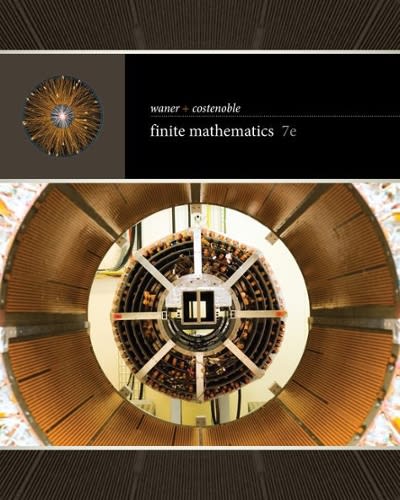Question
(A) Is it possible to get 23 heads in 24 flips of a fair coin? (B) If you flipped a coin 50 times and got
(A) Is it possible to get 23 heads in 24 flips of a fair coin?
(B) If you flipped a coin 50 times and got 49 heads, would you suspect that the coin was unfair? What empirical probabilities would you assign to the simple events of the sample space?
answer the following below and select the answer
(1) Is it possible to get 23 heads in 24 flips of a fair coin?
A.
Yes, because the event
n(H)=23 is the most likely event in the sample space.
B.
No, because the event
n(H)=23 is not contained in the sample space.
C.
No, because the event
n(H)=23
is not the most likely event in the sample space.
D.
Yes, because the event n(H)=23 is contained in the sample space.
(2) If you flipped a coin 50 times and got 49 heads, would you suspect that the coin was unfair?
A.
No, because it is highly probable to get 49 heads in 50 flips.
B.
Yes, because it is not possible to get more heads than tails. The number of heads and the number of tails should be equal.
C.
Yes, because it is highly improbable for a fair coin to get 49 heads in 50 flips. The number of heads and the number of tails should be approximately equal.
D. No, because a fair coin would get 50 heads in 50 flips.
(3)
Regardless if you believe the coin to be fair or unfair, based on the above data, what empirical probabilities would you assign to the simple events of the sample space?
P(H)=
P(T)=
(Type an integer or decimal rounded to the nearest thousandth as needed.)
Step by Step Solution
There are 3 Steps involved in it
Step: 1

Get Instant Access to Expert-Tailored Solutions
See step-by-step solutions with expert insights and AI powered tools for academic success
Step: 2

Step: 3

Ace Your Homework with AI
Get the answers you need in no time with our AI-driven, step-by-step assistance
Get Started


